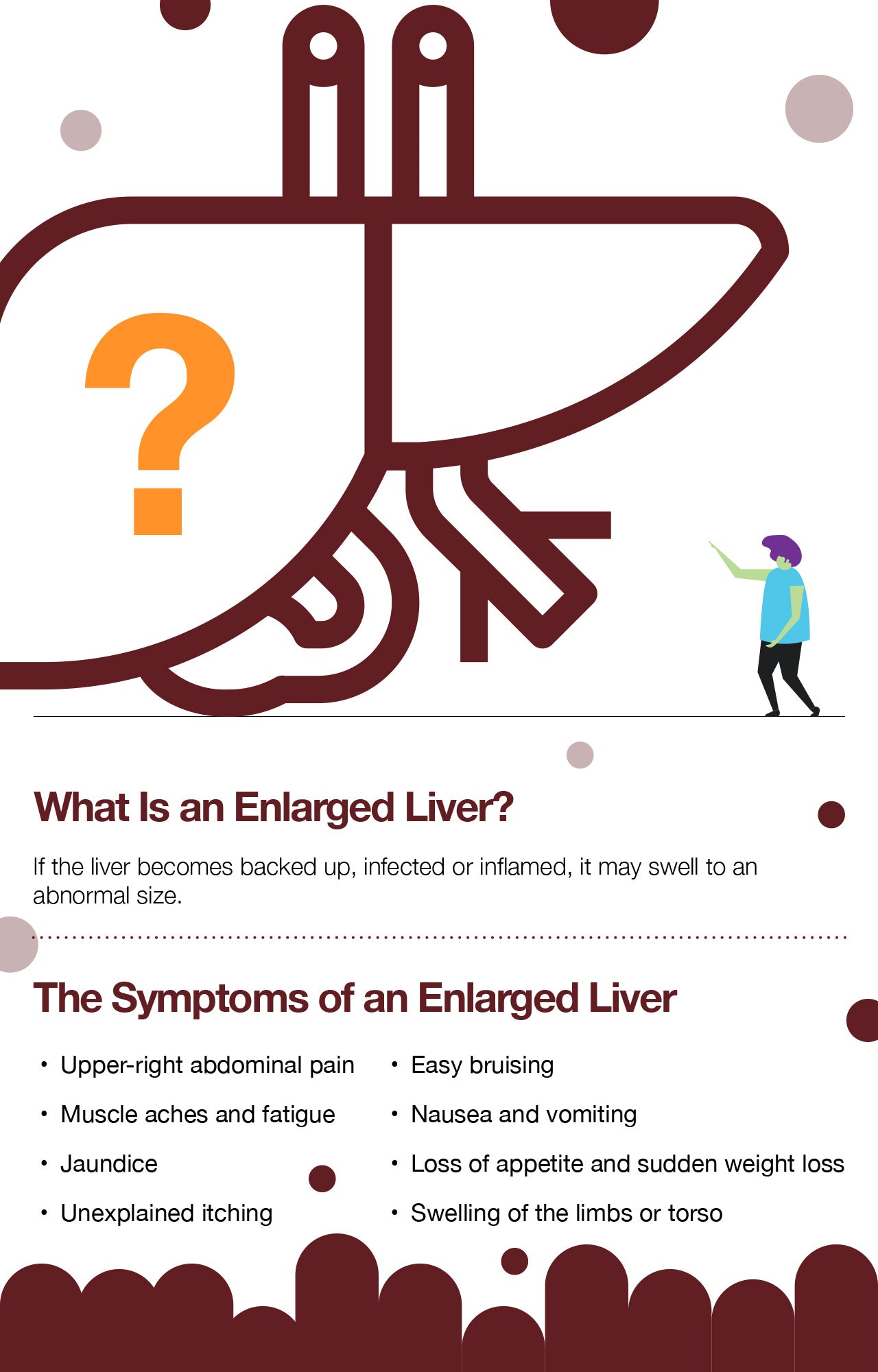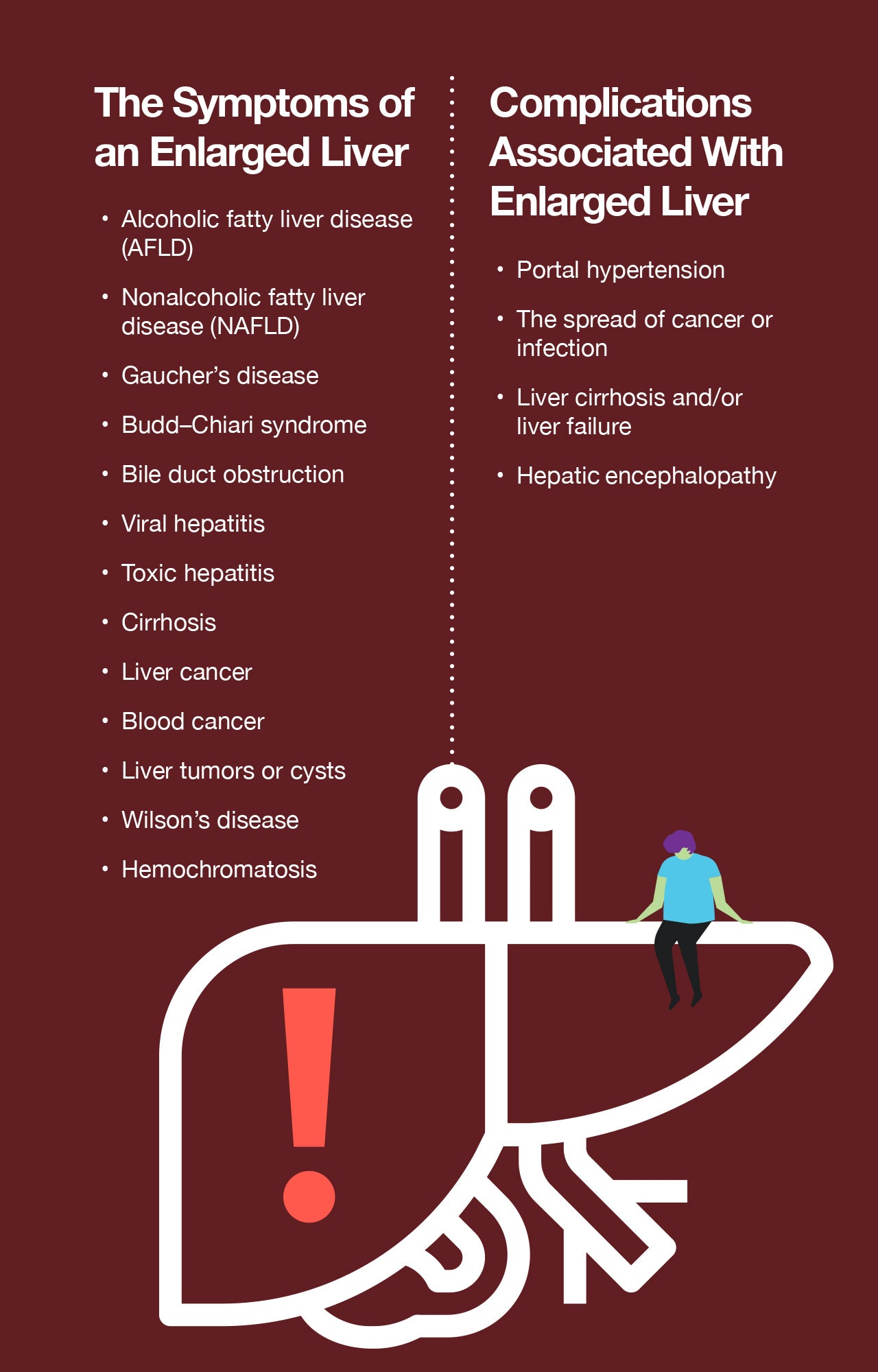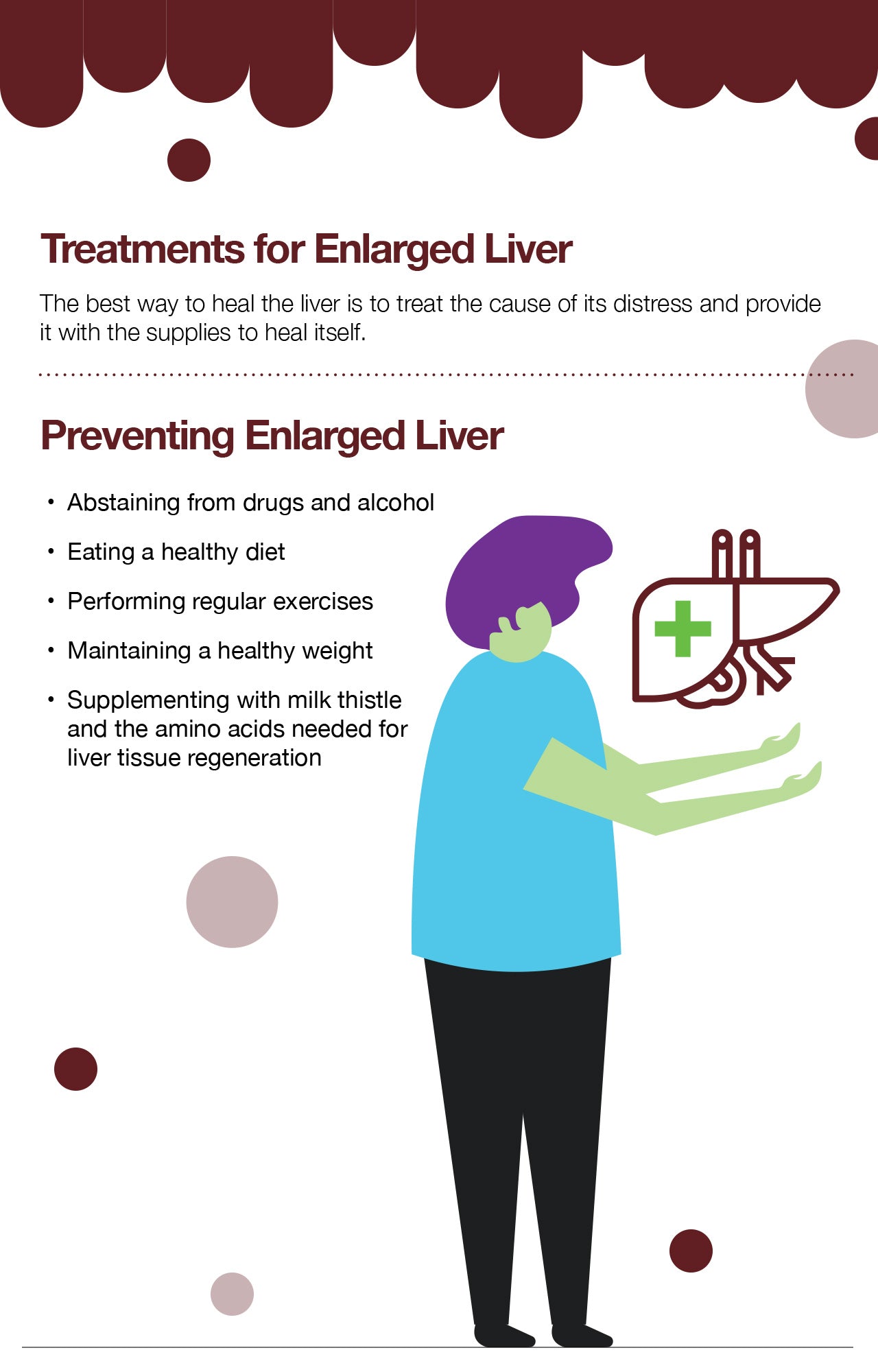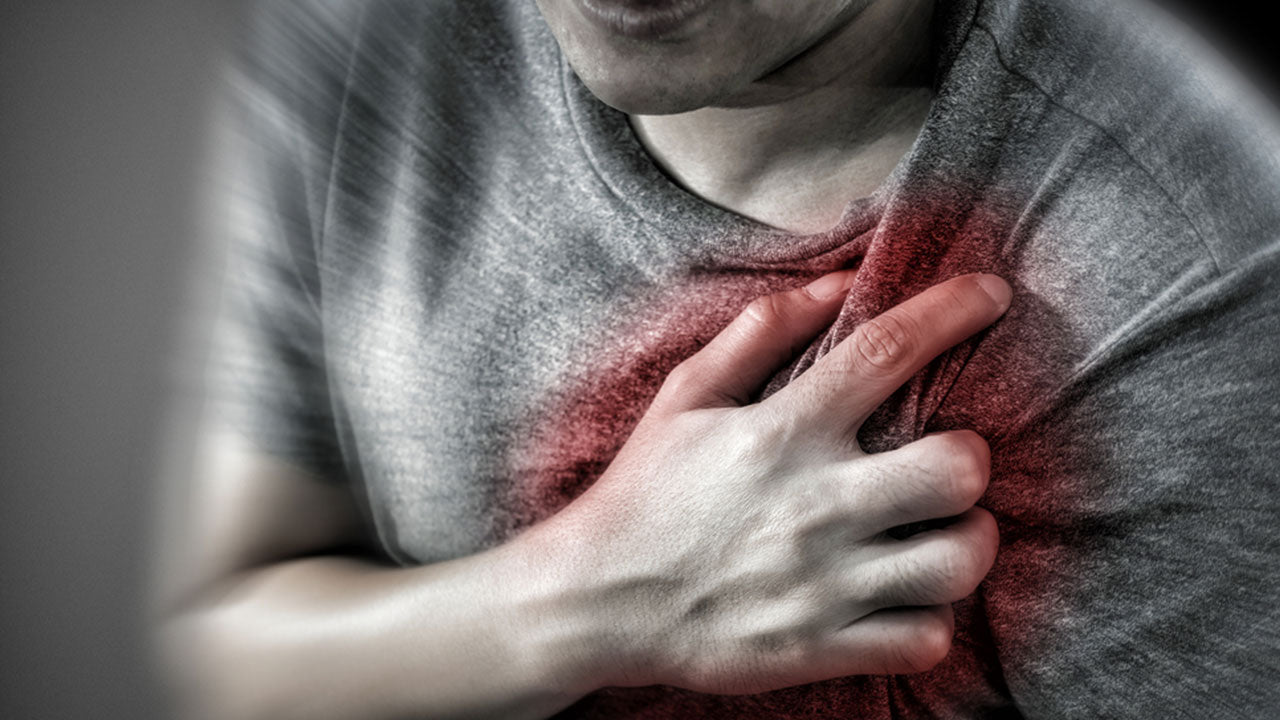Enlarged Liver: Symptoms, Causes, Complications and Cures
 By: by Amino Science
By: by Amino Science

An enlarged liver, also known as hepatomegaly, is a dangerous threat to your health. To find out what conditions cause the liver to enlarge and how you can reverse this damage before it becomes critical, read on.
What Is an Enlarged Liver?
The liver is located on the body's right side in the upper area of the torso. It's the top detox organ we've got, responsible for digesting fats, storing sugar (glucose) for energy, fighting infections, synthesizing hormones and proteins, regulating blood clotting, and, of course, breaking down and removing toxins. Even more impressive, the liver (unlike any other internal organ) can heal and regenerate, but nevertheless it can sometimes become damaged beyond repair. If the liver is enlarged beyond its normal size, that damage is already happening.
An enlarged liver could be an indication of liver disease, cancer, an infection, a genetic disease, abnormal blood vessels, or poisoning. Knowing the cause of an enlarged liver is imperative to reverse the damage. A doctor may order blood tests, specific liver function tests, conduct a physical examination, order a CT scan, or perform a liver biopsy to diagnose the issue and identify possible causes. The first step, however, is recognizing the symptoms of an enlarged liver.
The Symptoms of an Enlarged Liver
Unfortunately, the early stages of liver damage don't present with many or sometimes any symptoms. The signs of liver problems arise when the damage has progressed to a dangerous level, and that phase includes symptoms such as:
- Upper-right abdominal pain
- Muscle aches and fatigue
- Jaundice (yellowing of the skin and whites of the eyes)
- Unexplained itching
- Easy bruising
- Nausea and vomiting
- Loss of appetite and sudden weight loss
- Swelling of the limbs or torso (edema and ascites)
Once your liver shows signs of distress, the first priority is to discover what's causing an enlarged liver so it can be treated.

Common Causes of an Enlarged Liver
Here are some of the medical conditions that may be behind an enlarged liver.
- Alcoholic fatty liver disease (AFLD): Alcoholic liver disease is brought on by fatty buildup caused by excessive and/or long-term alcohol use.
- Nonalcoholic fatty liver disease (NAFLD): Fatty buildup in the liver that is not due to alcohol use may be caused by poor diet, lack of exercise, obesity, genetic predisposition, or some/all of the above.
- Gaucher’s disease: This disorder causes fatty buildup in the liver unrelated to alcohol consumption or lifestyle factors.
- Budd–Chiari syndrome: An extremely rare condition, Budd-Chiari syndrome causes blockage in the veins that drain the liver. (Congestive heart failure can also cause this sort of blockage and backup in the hepatic veins.)
- Bile duct obstruction: A blockage in the bile duct can trigger liver backup and congestion.
- Viral hepatitis: Usually due to hepatitis A, B, or C infections.
- Toxic hepatitis: This is hepatitis brought on by poisoning (the most common cause of overdose in the United States is due to over-the-counter acetaminophen, i.e., Tylenol).
- Cirrhosis: An accumulation of scar tissue (fibrosis) can result in cirrhosis, which is permanent liver damage.
- Liver cancer: Cancer that has either originated in or metastasized to the liver.
- Blood cancer: Blood cancers like lymphoma and leukemia can also lead to an enlarged liver.
- Liver tumors or cysts: These growths inside the liver, whether benign or the result of hepatocellular carcinoma, can cause the liver to enlarge.
- Wilson’s disease: This condition causes copper to build up in the liver.
- Hemochromatosis: A buildup of iron in the liver.
Conditions such as autoimmune disorders, obesity, sickle cell disease, HIV/AIDS, or inflammatory bowel disease can increase your risk factors for an enlarged liver.
Complications Associated with Enlarged Liver
A healthy liver is also known as a homogeneous liver, a liver that is reddish-brown, smooth, firm, and of normal size. Abnormal liver size coupled with lumpiness and a sickly color typifies a heterogeneous liver. A liver in this damaged state can lead to even further complications. When this vital organ is out of commission, you're more vulnerable to opportunistic infection and health troubles including:
- Portal hypertension (high blood pressure in the veins that surround the liver, esophagus, and stomach)
- The spread of cancer or infection
- Liver cirrhosis and/or liver failure
- Hepatic encephalopathy (a brain disorder)
Seek and adhere strictly to medical advice to hopefully avoid these complications.

Treatments for Enlarged Liver
The treatment for enlarged liver depends largely on the underlying cause. For example, if the liver is enlarged due to cancer, the first priority is to eradicate the cancer. If it's due to a curable infection, the solution may be a round of antibiotics. If it's the result of an incurable infection like hepatitis C, the treatment is to manage that condition as well as possible. Liver enlargement due to alcoholic or nonalcoholic fatty liver disease requires sobriety and lifestyle changes such as diet and exercise. So on and so forth depending on the cause of the damage—the best way to treat the liver is to give the organ enough space and supplies to heal itself.
Preventing Enlarged Liver
Assuming it is in your power to prevent an enlarged liver, the best practices you can follow to keep the liver healthy include:
- Abstaining from drugs, alcohol, and unnecessary over-the-counter medications
- Eating a healthy diet that keeps your liver clean and functioning
- Performing regular exercises—walking, running, sporting, strength training, or aerobic exercise
- Maintaining a healthy weight and avoiding obesity
- Supplementing with important nutrients, from detox helpers like milk thistle to full-body aids like essential amino acids with all three branched-chain amino acids (BCAAs) that are proven to be critical in regenerating liver tissue

Give Love to Your Liver
An oversized, enlarged liver is a dangerous symptom of an underlying medical condition. Take care of yourself, don't hesitate to see a doctor if anything in your health feels amiss, and remember that when it comes to your liver, you have an enormous opportunity to halt and reverse the damage being done. We encourage you to do everything you can to avoid missing that window of opportunity.

Up to 25% off Amino
Shop NowTAGS: conditions liver
Join the Community
Comments (0)
Most Craveable Recipes




 833-264-6620
833-264-6620



















